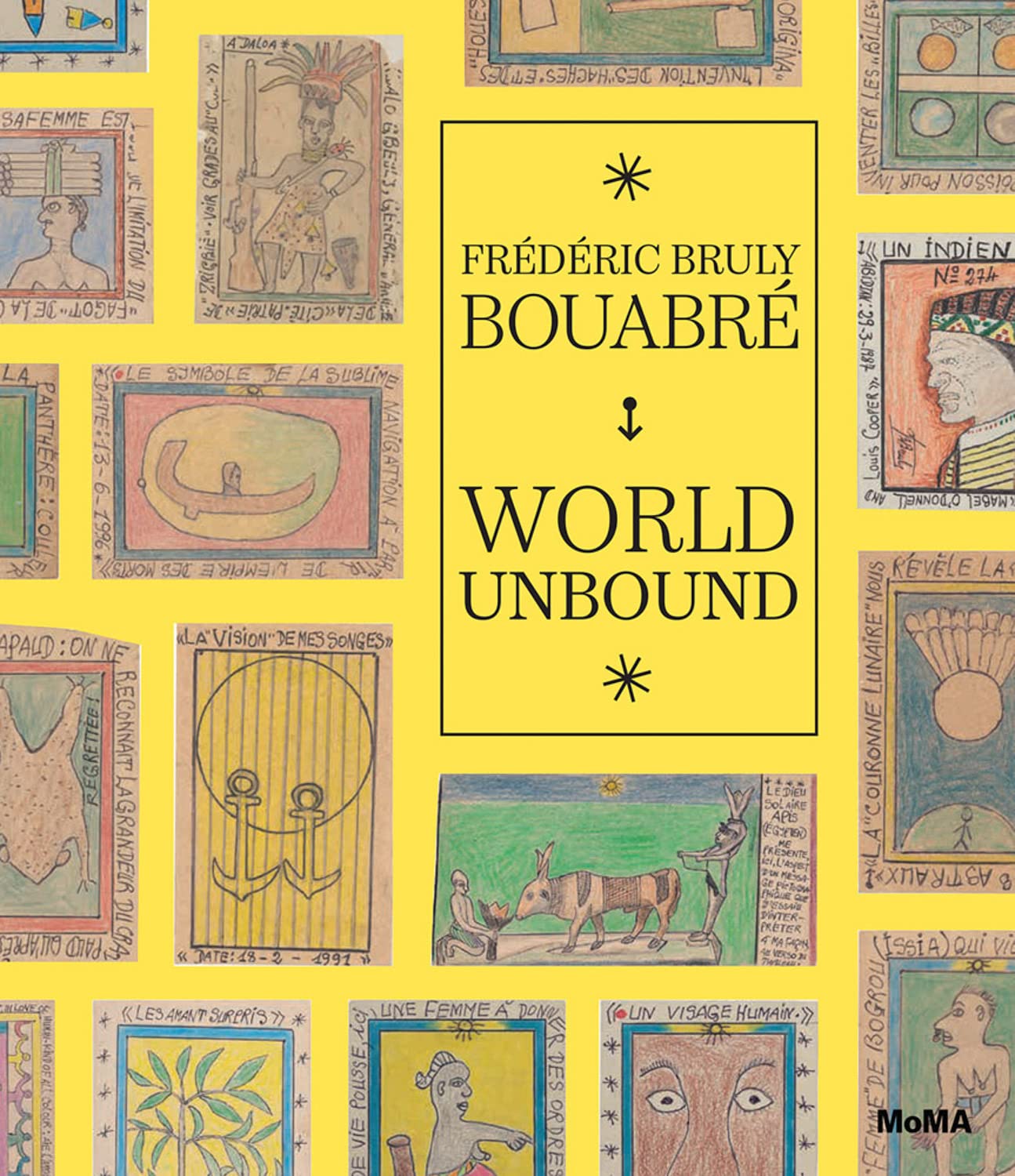World Unbound | Frederic Bruly Bouabre, Ugochukwu-Smooth C. Nzewi

Detalii World Unbound | Frederic Bruly
carturesti.ro
148 Lei
Carte straina
Museum of Modern Art
World Unbound | Frederic Bruly - Disponibil la carturesti.ro
Pe YEO găsești World Unbound | Frederic Bruly de la Museum of Modern Art, în categoria Carte straina.
Indiferent de nevoile tale, World Unbound | Frederic Bruly Bouabre, Ugochukwu-Smooth C. Nzewi din categoria Carte straina îți poate aduce un echilibru perfect între calitate și preț, cu avantaje practice și moderne.
Caracteristici și Avantaje ale produsului World Unbound | Frederic Bruly
- Departament: gaming-carti-birotica
- Ideal pentru pasionații de jocuri, birotică și distracție online.
Preț: 148 Lei
Caracteristicile produsului World Unbound | Frederic Bruly
- Brand: Museum of Modern Art
- Categoria: Carte straina
- Magazin: carturesti.ro
- Ultima actualizare: 11-11-2024 01:46:56
Comandă World Unbound | Frederic Bruly Online, Simplu și Rapid
Prin intermediul platformei YEO, poți comanda World Unbound | Frederic Bruly de la carturesti.ro rapid și în siguranță. Bucură-te de o experiență de cumpărături online optimizată și descoperă cele mai bune oferte actualizate constant.
Descriere magazin:
The first museum survey of the visionary polymath from Cote d\'IvoireThe Ivorian artist Frederic Bruly Bouabre created an unmistakable and entirely unique body of work, first as a writer and linguist, and then in a dazzling series of colorful drawings on a multitude of subjects, from his native Bete culture to the urban milieu of Abidjan to the all-encompassing themes of fraternity, equality and global understanding. All but unknown even in his home country of Cote d’Ivoire, Bouabre found international recognition in 1989 when he participated in the landmark Paris exhibition Magiciens de la terre, and his work has since been the subject of solo and group exhibitions around the world.Published to accompany the first museum survey of Bouabre’s work in North America, this catalog offers a vivid account of the artist’s long and multifaceted career, including a detailed chronology of his life and reproductions of more than six hundred of his drawings. An essay by curator Ugochukwu-Smooth C. Nzewi introduces Bouabre to a new audience, illuminating his significance as both an important African creator and one of the most intriguing artists of the 20th century.Frederic Bruly Bouabre (1923–2014) started his career as a bureaucrat in the French colonial administration but reinvented himself as a self-taught ethnologist and artist in Cote d’Ivoire, his home country. After developing a written syllabary for the oral culture of his Bete people, he turned to drawing as a way to unite Bete subjects with broader themes of human experience. His work attracted global interest, leading to major exhibitions and biennials since its art-world debut in 1989.

Produse asemănătoare

Design Unbound: Designing for Emergence in a White Water World: Ecologies of Change, Paperback/Ann M. Pendleton-Jullian
![]() elefant.ro
elefant.ro
Actualizat in 02/07/2025
349.99 Lei

China Unbound. A New World Disorder, Paperback/Joanna Chiu
![]() elefant.ro
elefant.ro
Actualizat in 02/07/2025
111.99 Lei

Information Design Unbound. Key Concepts and Skills for Making Sense in a Changing World, Paperback/***
![]() elefant.ro
elefant.ro
Actualizat in 02/07/2025
318.99 Lei

Poetry Unbound. 50 Poems to Open Your World, Main, Hardback/Padraig O Tuama
![]() elefant.ro
elefant.ro
Actualizat in 02/07/2025
121.99 Lei

Poetry Unbound. 50 Poems to Open Your World, Main - Canons, Paperback/Padraig O Tuama
![]() elefant.ro
elefant.ro
Actualizat in 02/07/2025
149.99 Lei

Frederic Bruly Bouabre: World Unbound, Hardback/Ugochukwu-Smooth C. Nzewi
![]() elefant.ro
elefant.ro
Actualizat in 02/07/2025
134.99 Lei
Produse marca Museum of Modern Art

Yayoi Kusama: From Here to Infinity!, Hardcover/Sarah Suzuki
![]() elefant.ro
elefant.ro
Actualizat in 02/07/2025
94.99 Lei

Items: Is Fashion Modern\', Hardcover/Paola Antonelli
![]() elefant.ro
elefant.ro
Actualizat in 02/07/2025
213.99 Lei

Robert Frank: Trolley-New Orleans, Paperback/Lucy Gallun
![]() elefant.ro
elefant.ro
Actualizat in 02/07/2025
66.99 Lei

Moma Now: Highlights from the Museum of Modern Art, New York, Hardcover/Glenn Lowry
![]() elefant.ro
elefant.ro
Actualizat in 02/07/2025
365.99 Lei

Weimar Cinema, 1919-1933. Daydreams and Nightmares, Paperback/***
![]() elefant.ro
elefant.ro
Actualizat in 02/07/2025
161.99 Lei
